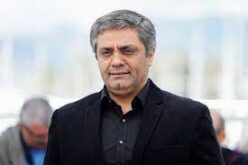Al-Monitor – After Iranian President Hassan Rouhani introduced his second-term Cabinet in August 2017, many in the Reform camp criticized his choices. As the country moves toward an internal political and economic crisis, it appears Rouhani is adding his voice to those of the critics.
In an April 29 speech, Rouhani slammed the seeming passiveness of some of the ministers and managers in the government. The president said that his ministers could be divided into pessimists and optimists, questioning the former’s use of complaints over such matters as low budgets and insufficient rainfall to defend lackluster outcomes and hailing the latter’s positive remarks and suggestions for constructive solutions.
This was not the first time in the current Iranian year, which began March 21, that the president has criticized his own government. On April 21, Rouhani said, “Some of our government managers have taken a vow of silence. I don’t know what they are afraid of. Anyone holding a government post, at whatever level, should know that based on the constitution and their religious obligations, they have abilities and must perform their duties. If they are intimidated by others, then they should just step aside.”
Rouhani also warned his Cabinet members, stating, “If a minister, manager or governor thinks he cannot abide by the duties required of him by law, or believes his powers are limited, he is not obliged to maintain his post for the full four-year term. He can step aside now. If someone is intimidated by one phone conversation and thus fails to fulfill his duties, it is forbidden for him to remain in that post. He must step aside now.”
First Vice President Eshaq Jahangiri has also on several occasions voiced his disapproval of the pessimistic attitude among some Cabinet members. On April 21, Jahangiri called on government managers to practice self-sacrifice. About a week earlier, on April 12, he charged that “some managers” immediately flee the political battlefield with the slightest pressure from hard-liners.
Such criticisms have sparked varying reactions. Conservative media outlets have called on Rouhani to address the ministers in private instead of publicly expressing his concerns. On April 30, Alef, a conservative news outlet run by former parliamentarian Ahmad Tavakoli, published a piece headlined “Mr. Rouhani, Solve the Differences With Your Ministers Inside the Cabinet.” In it, Tavakoli wrote, “Mr. Rouhani and Mr. Jahangiri have recently criticized their own ministers in public forums. Could they not have voiced their objections to their own ministers [in private]? If the ministers have produced weak performances up until now, which we surely believe they have, then the responsibility lies with the head of the Cabinet. Making comments that sow discord will not relieve them [Rouhani and Jahangiri] of this responsibility.”
The Reformists were never too keen on Rouhani’s Cabinet either. Morteza Moballegh, a pro-Reform political activist who served as deputy interior minister under former President Mohammad Khatami (1997-2005), was reported as saying on June 5, “Rouhani’s campaign promises cannot be fulfilled with a silent and passive Cabinet. From the start, the Reformists alerted Mr. Rouhani [about the need] to choose brave and capable Cabinet members so that in times of hardship and pressure, they will not cave in and will perform their duties well. Fortunately, today, Mr. Rouhani has realized this and is trying to make a change without creating tension. He knows that society needs tranquility, which is why he has tried to solve these issues calmly.”
There are, however, some who believe Rouhani has no serious intention of rectifying the situation and is only trying to win over public opinion by voicing dissent about his own Cabinet’s performance in the media.
Reformist journalist Mahdi Ghadimi told Al-Monitor, “Rouhani is more interested in portraying himself as someone who wants to make a change than actually wanting to do it. If this [change] were his intention, he would not have nominated such a Cabinet. The Reformists were critical of his Cabinet choices in both [his] administrations. But both times, Rouhani decided on the main body of his Cabinet via interactions with different political groups. Therefore, it is natural to have difficulty believing what he says today, especially since he is not willing to shuffle Cabinet members again and is only content with criticizing them in media outlets.”
The reality is that while Rouhani’s foreign policy, carried out under the management of Foreign Minister Mohammad Javad Zarif, has been admirable — even mindful of the dire straits of the nuclear deal — his domestic and economic policies have been the subject of much criticism. This has been voiced not only by the government’s conservative and hard-line rivals, but also by the Reformists.
Among the issues regularly cited by the Reformists are the continued house arrests of opposition leaders Mir Hossein Mousavi, Mehdi Karroubi and Zahra Rahnavard; the lack of political freedom; and ongoing troubling economic issues that threaten to destabilize both the economy and society, such as unemployment, high prices and the rial’s devaluation. Meanwhile, instead of taking practical measures to overcome these hurdles, Rouhani and his first vice president give the appearance of primarily being focused on issuing statements designed to win over public opinion rather than implementing actual changes.
Rouhani has roughly three years left as president. In early 2020, Iran will hold parliamentary elections, which will prepare the ground for presidential elections the following year. If Rouhani’s administration fails to alter its current trajectory, it could have serious consequences for the future direction of Iranian politics.
First and foremost, a continuation of the status quo could lead to serious disenchantment with the Reformists. The immediate impact of this will likely be lower voter turnout, which in the past has propelled hard-liners to victory in parliamentary and presidential balloting. The situation will only worsen if Rouhani fails to keep the nuclear deal alive, thereby being confronted once again with challenges stemming from harsh sanctions. As such, if Rouhani’s aim is to maintain the path of moderation pursued by the executive and legislative branches, he must translate his words into action, sooner rather than later.
Saeid Jafari is an Iranian journalist and Middle East analyst. He has worked for such Iranian publications as Aseman, Khordad, Mosalas and Mehrnameh. He is the editor of the international and diplomatic section of the weekly Seda in addition to working for Khabar Online. Jafari has also published English-language articles in Iran Review. On Twitter: @jafariysaeid
 Shabtabnews In this dark night, I have lost my way – Arise from a corner, oh you the star of guidance.
Shabtabnews In this dark night, I have lost my way – Arise from a corner, oh you the star of guidance.


